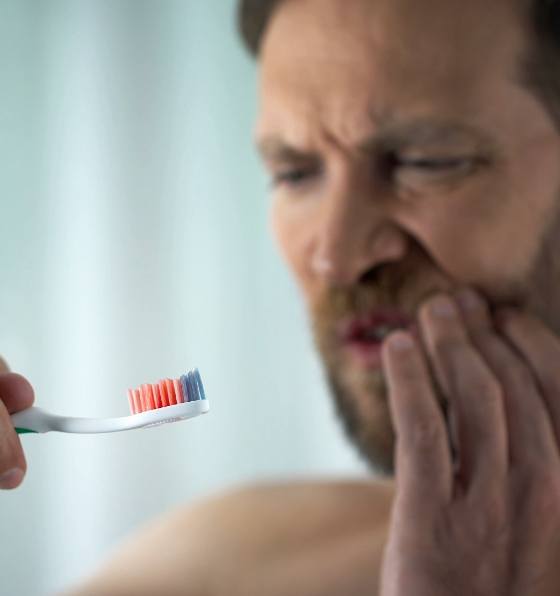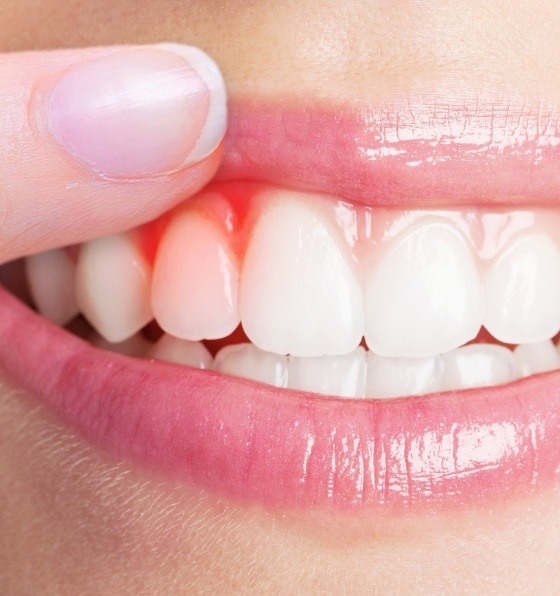Gum Disease Treatment – Lincoln, NE
Improve Your Gum Health
Much of dentistry is focused on the teeth. The message you probably heard growing up was all about brushing and flossing your teeth, but your oral hygiene routine should also include your gums. The gums support the teeth in a very important way by supplying them, as well as the surrounding jawbone, with blood. Just like with teeth, the gums can be affected by the buildup of plaque and bacteria, causing gum disease. In order to treat it, Pioneer Greens Dentistry offers periodontal therapy in Lincoln, NE.
Why Choose Pioneer Greens Dentistry for Gum Disease Treatment?
- ·Gum Screenings Performed at Every Checkup
- ·Pain-Less Laser Gum Therapy
- ·Expert Team Helps Prevent & Manage Infection
What is Gum Disease?

Your gums need to be cleaned regularly in order to break up the buildup of plaque and bacteria. This plaque can lead to an infection, which is uncomfortable on its own, but can also affect your teeth. Some common signs of gum disease are:
- Red, swollen, or puffy gums
- Persistent bad breath
- Gums that are sensitive or bleed easily
- Receding gums
- Bumps or pockets along the gum line
Gum disease is the leading cause of tooth loss in patients over 35. It is easy to miss cleaning along the gums during your normal routine, which is why nearly half of all adults in the U.S. have gum disease.
How Can Gum Disease Be Treated?

The best way to treat gum disease is to prevent it in the first place. Regular checkups with your dentist in Lincoln, NE can help you avoid gum disease as well as catch it early so it is easier to treat. Gum disease often does not present obvious symptoms until it is quite advanced, so these regular visits give us a chance to stop it before it becomes a real problem.
There are two main types of gum disease. The first, gingivitis, is less severe, and often can be treated with more substantial brushing and flossing, paying particular attention to where the teeth meet the gums. The more severe type of gum disease is called periodontitis. At this point, you will need to be treated using a pair of procedures called scaling and root planing. Scaling involves using specialized tools to clean the buildup of plaque and tartar off of your teeth below the gum line. Root planing then smooths out the roots to curtail buildup in the future.
Depending on your particular situation, these procedures may require more than one visit, along with a follow-up to see how your gums are healing. You may also be prescribed a round of antibiotics to further treat the infection.
